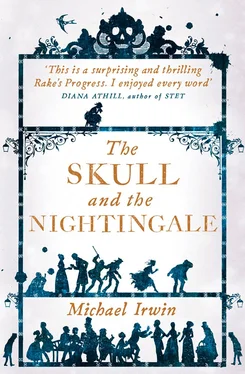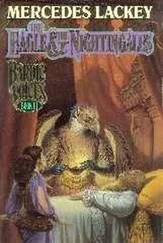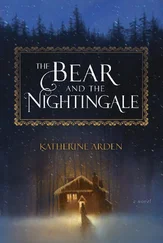It was a dark, boisterous night. I made my way back towards Holborn along busy thoroughfares, clutching my hat whenever I turned a corner into a gust of breeze. North of Lincoln’s Inn Fields the streets were quieter and but feebly lit. I was brought up short when a haggard girl stepped out suddenly from the end of an alley, crying: ‘Come this way, sir!’
‘Not tonight, I thank you,’ said I, affably enough.
‘No, no’ – in a frantic voice – ‘I need help. My child …’
She turned hurriedly into the alley, and I followed, willing to be of assistance if I could. But after a few yards she turned about, clutched my greatcoat and shouted ‘Rape! Rape!’ At once a heavy brute of a man sprang from a doorway brandishing a cudgel. Startled as I was I found myself protected, as in certain previous physical encounters, by an instant blaze of animal rage. Half avoiding the bully’s blow I seized his coat and rammed him back against the wall. He raised his club again, but I checked him with a punch to the belly, and then struck him a dowse to the chops that smacked his head back against the brickwork. The intending robber staggered sideways and stumbled to his knees. The girl leaped at me, scratching with both hands, but I wrenched her away and threw her on top of her fallen protector. Without waiting for more I hastened away.
Such a fury had surged in me that I walked an extra mile, at top pace, to allow my pounding heart to settle. It had been a sordid episode, but before I reached Mrs Deacon’s house I found myself recovered from it and not unsatisfied. The first evening of my return to England had called into play some of the aptitudes fostered by my travels. I had taken a lively part in impromptu discussion and then shown that I could hold my own in a street fight. It seemed that I was resourceful, a young man of parts.
Next morning I winced a little on rising. There was a stiffness in my shoulder and a handsome purple bruise on my ribs. It would take me a day or two to shake off these effects. Through the window I saw rain, which suited my mood well enough. Here was a stasis in my life, an interlude between the acts: I could make it a time for recuperation and reflection. I knew where I would be likely to find some of my former Oxford companions, but felt no inclination to seek them out. How could I answer the questions that would greet me until I knew what was purposed for my future and what sort of figure I was likely to cut? Matt Cullen I would have been glad to see, for he was a man I could laugh with, but our correspondence had lapsed, and I knew nothing of his whereabouts.
All morning I stayed within doors, completing the journal that I had kept during my travels. The parlour in which I was writing had a mirror at one end in which I several times caught my reflection. At length I rose to study myself more minutely and at full length. In figure I would pass muster, being above the common height, vigorous and well-knit, but my face seemed to me too open, too youthful, redeemed from blandness only by strong brown eyes. Given the common belief that a man’s character can be deduced from the front portion of his head, this could be a disadvantage. I practised certain expressions – attentive, amused, eager – and found the case somewhat improved. I could assume a variety of responses that might make me appear an agreeable companion. In repose, however, my face seemed a tabula rasa , awaiting the imprint of further experience.
The rain continuing, I worked diligently at my journal, bringing the record to a conclusion with my arrival in Dover. It was convenient that the combination of vacant time, rough weather, a bottle of ink and the wing-feathers of a goose had enabled me to capture my recollections before they were lost – I had always been quick to forget. My life being thus far in order, I was ready for what was to come.
Cathcart Street was in a quiet neighbourhood, but there was noise enough from it to bring me to the window more than once. The kennel down the middle of the road was swollen by the rain into a thick black stream, lumpy with refuse. Pedestrians in sodden clothes struggled sullenly along its edges, forced close to the walls. It was a dismal sight: there was much to be said for loitering within, warm and dry.
Later in the day, tiring of my own company, I made occasion to take tea with Mrs Deacon. Although I had lodged in the house before, I knew nothing of her beyond the fact that she was a widow, with a young daughter named Charlotte. In conversation she proved civil and shrewd, but maintained a certain reserve. It was this quality, perhaps, that caused me to see her as a handsome woman of forty, looking younger than her age, rather than as indeed a younger woman. Her composure suggested a lack of interest in any physical attraction that she might possess. I was unsure whether to play man of the world or affable young fellow. It was by chance that I found the less formal direction.
‘Do you know Mr Gilbert?’ I inquired.
‘I knew him years ago. If he communicates with me now it is through Mr Ward.’
‘Then the messages will be brief. Yesterday he offered me but fifty words.’
She smiled. ‘So many? Then you can count yourself a friend.’
‘Tell me, Mrs Deacon,’ said I, ‘how do you think this taciturn gentleman passes his evenings.’
She considered. ‘He sits in an arm-chair and reads a big black book. When it grows dark he walks the streets with a big black dog.’
‘But what is in the book he reads?’
‘Nobody knows. It is one of his secrets.’
This time we both smiled.
I was glad to have hit on this vein of whimsy in my landlady’s disposition, and to find myself easy in her company. Later that night, my imagination stirred by wine, I tried to envisage the warm body beneath the long dress. I liked what I saw with my mind’s eye, but suppressed the picture as unsuitably distracting in my present situation.
After two or three days of idleness I grew restless. I was in the unsatisfied state produced when the mind teems with questions to which there are no clear answers. Having had no living relatives since the age of ten I was accustomed to a solitary existence. Reserve and self-sufficiency were almost the only qualities I had in common with my godfather. But I fretted at being becalmed. Ambition assured me that Mr Gilbert would not have paid for my education, and sent me to the great cities of Europe unless he had substantial future plans for me. But circumspection reminded me that he was an enigmatic man whose patronage had been conferred from a distance. Although he had rescued me when I was homeless he had scarcely ever spoken of my parents, who had been his friends; and although he had countenanced occasional visits to Fork Hill House he had never encouraged me to stay for more than a few days at a time. At Oxford, therefore, I had been at pains to say nothing of my upbringing, not caring to admit that I had neither family nor home. Appearances had been preserved by bluff and evasion; but the constraint had been wearisome.
It was characteristic of Mr Gilbert to have dropped no hint as to his future intentions. For all I knew he might be planning to buy me a commission in the army or send me to the colonies. I felt no enthusiasm for either prospect. If I was to stay at home the possibilities seemed limited. I could not enter the church: neither my vagrant habits of thought nor my animal spirits would allow it. The law was hardly more inviting.
My favourite hope soared higher: perhaps too high. As far as I knew, my godfather had no living relatives. At his age he was unlikely to attempt marriage; and should he do so his thin loins would be hard put to it to originate an offspring. Surely it was time for him to proclaim me his heir and prepare me for the life of a prosperous landowner? In the country I could walk, ride and perhaps hunt. The more reflective side of my nature would find sustenance in Mr Gilbert’s well-stocked library. When I needed younger company and livelier entertainment I would spend a few raucous weeks in London. Satiety achieved, I could again retreat to Worcestershire to read books and view the world philosophically.
Читать дальше












